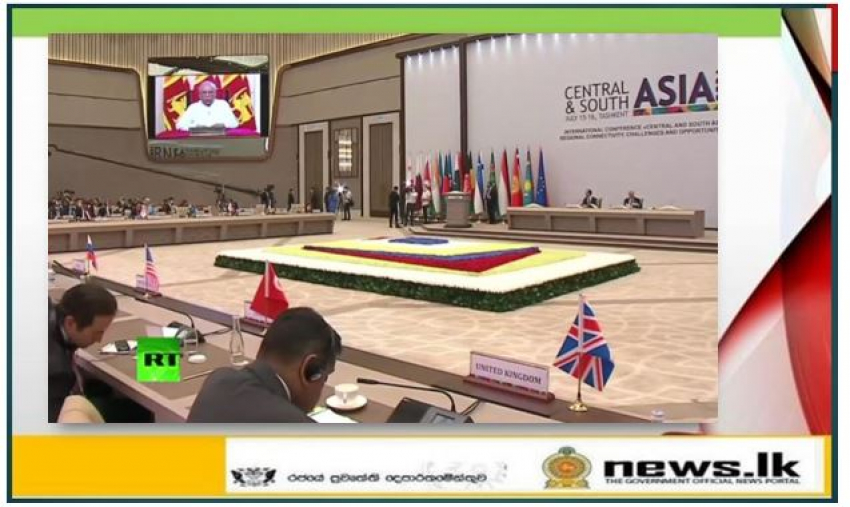“Central and South Asia: Regional Connectivity. Challenges and Opportunities”
Tashkent, Republic of Uzbekistan, 15-16 July 2021
Your Excellency Abdulaziz Kamilov, Minister of Foreign Affairs of Uzebkistan,
Excellencies,
Ladies and Gentlemen,
I am honoured to participate in this high-level forum dedicated to discussing the very relevant topic of connectivity between two important and dynamic regions in the world today: Central and South Asia. I would like to commend His Excellency Shavkat Mirziyoyev, President of the Republic of Uzbekistan, for organising this timely forum bringing together the views of diverse countries on one platform in spite of the challenges posed globally by the COVID-19 pandemic. This is also an opportune moment to discuss connectivity, when Uzbekistan and the other Central Asian countries mark their third decade as independent nations this year.
Sri Lanka and Uzbekistan, as well as South and Central Asia share longstanding historical and cultural links. We are heirs to ancient civilisations that contributed immensely to the making of the modern world through achievements in mathematics, astronomy, medicine, philosophy, religion and the arts. Central Asia, though land locked, was at the crossroads of ancient trade routes connecting multiple regions, including the ancient Silk Route. The beautiful island of Sri Lanka, with its strategic location at the heart of the Indian Ocean, was also placed at the crossroads of the East - West trade routes, including the ancient maritime Silk Route.
Today, our location in the Indian Ocean has become even more significant in connecting South Asia with Asia, Africa, Europe and the Americas. Sri Lanka’s vision in achieving sustainable development through regional and global connectivity, complemented by a robust, neutral and non-aligned foreign policy, is spelt out by the President His Excellency Gotabaya Rajapaksa in the national development policy framework ‘Vistas of Prosperity and Splendour’.
Connectivity today is an imperative for socio-economic development in an increasingly globalised and inter-dependent world. Today, the centre of gravity of the world economy has pivoted towards Asia. South Asia has become one of the fastest growing regions in the world. For the first time in modern times, Asian economies are becoming larger than the rest of the world combined. At the same time, the economic potential of resource- and energy- rich Central Asia, is increasing exponentially. In this context, maritime and land connectivity between South and Central Asia and the West are becoming an imperative to expand global trade.
Tashkent, the Capital of Uzbekistan has long enjoyed air travel connectivity with Colombo, Sri Lanka.However, in spite of the vast potential, connectivity between the two regions remains at a relatively low level today. There is therefore a need to reinforce existing synergies, overcome cross-border challenges, and forge stronger trade, investment and tourism ties, to suit current requirements.
The Colombo Port City in Sri Lanka is an example of a Special Economic Zone that would offer competitive investment opportunities in international trade, offshore banking and financial services, shipping and logistics operations, information technology and business process outsourcing, and other ancillary services, to help reinforce regional connectivity.
Before I conclude, I would like to extend our deep appreciation to the Government of Uzbekistan for its principled position of support to Sri Lanka at the 46th Session of the UN Human Rights Council in Geneva this March.
I convey my sincere thanks to Your Excellency for your constructive engagement, and to all participants for their valued interventions. I look forward to a productive outcome of today’s deliberations.
Thank you.
....................................
The full video can be viewed at: https://www.google.com/url?q=https://youtu.be/9sXNmn92Ol4&source=gmail&ust=1626658887067000&usg=AFQjCNHYSsA24EINCGPCeb7IfS1N5mWcrA">https://youtu.be/9sXNmn92Ol4



















